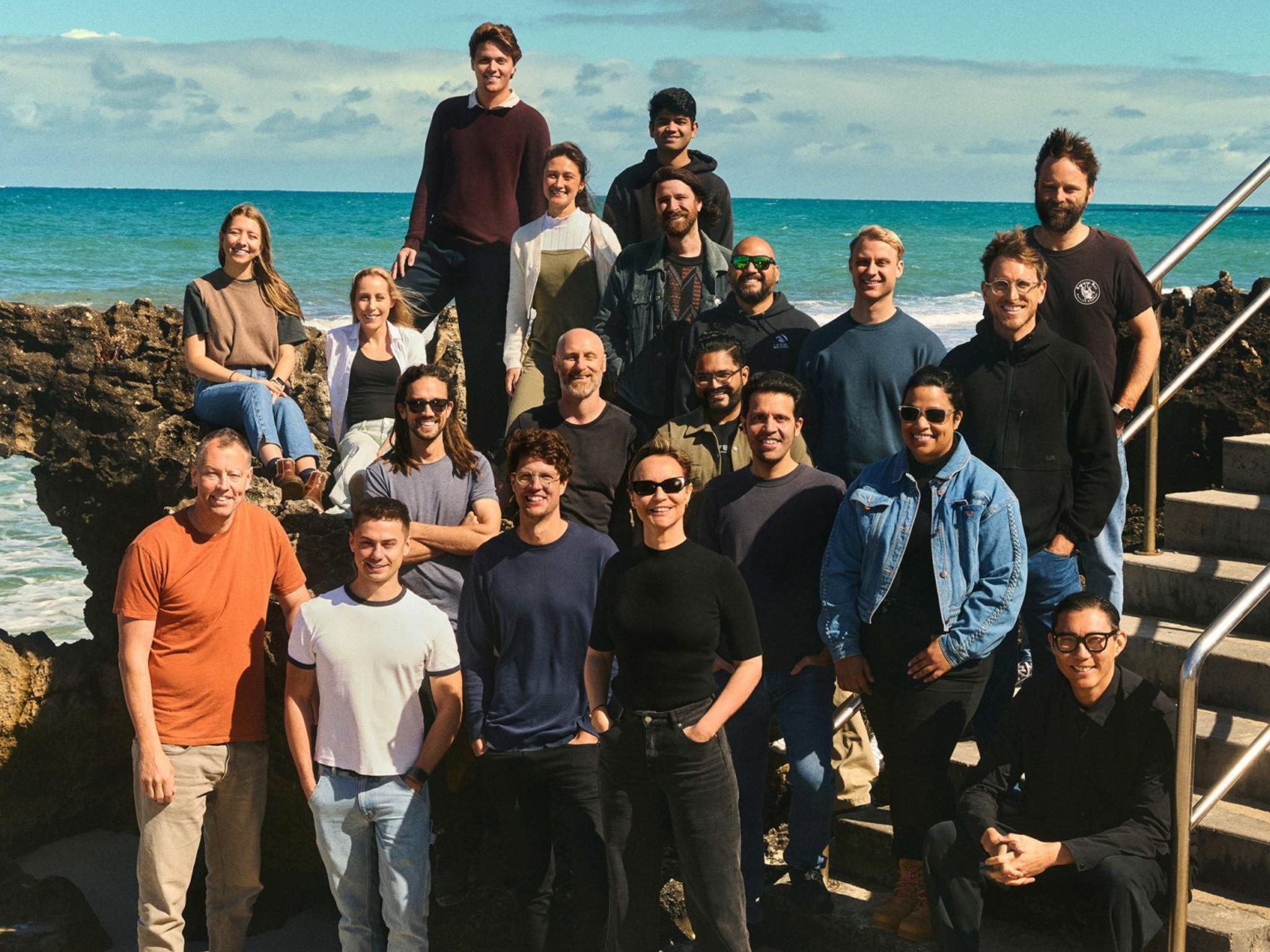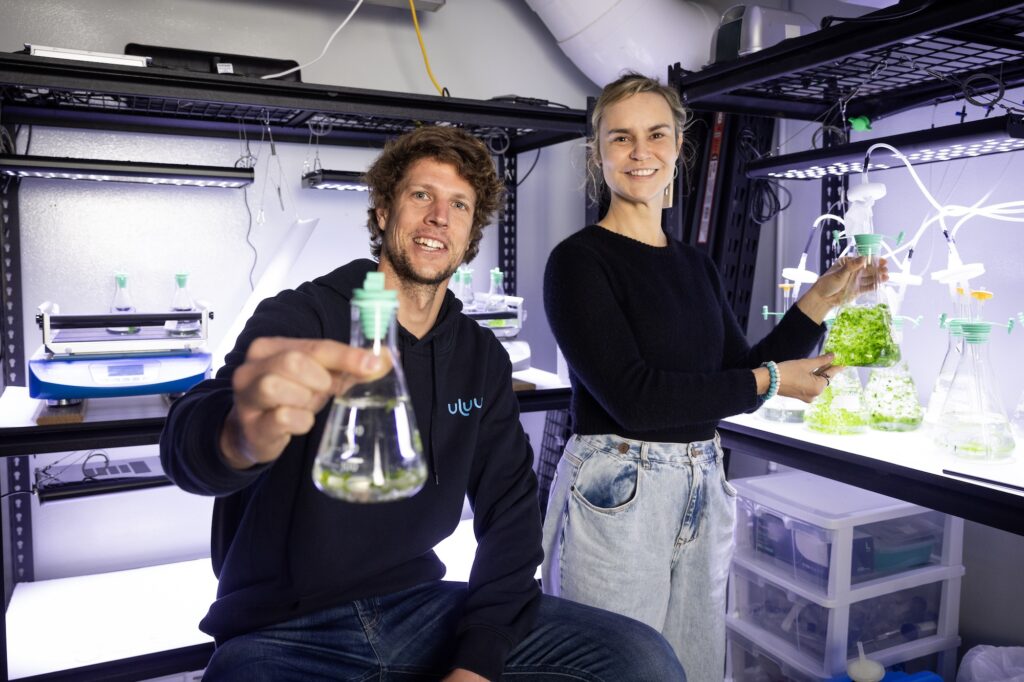
Australian eco materials firm Uluu has raised A$16M ($10.5M) to build a demo facility and scale up its technology to turn seaweed into bioplastics.
Aiming to replace plastic in everything from clothes and packaging to car interiors and electronics, Perth-based startup Uluu has secured fresh funding to scale up its seaweed-derived materials.
The A$16M ($10.5M) round was led by returning backer Burda Principal Investments, with participation from Main Sequence, Novel Investments, Startmate, and a consortium of impact and family investors, including Fairground and Trinity Ventures.
“Having first invested in Uluu in 2023, we’re excited to further deepen our partnership as the company scales its pioneering technology,” said Christian Teichmann, CEO of Burda Principal Investments. “Uluu is redefining how materials can be produced more sustainably at industrial scale.”
How Uluu turns seaweed into bioplastics

Founded in 2021 by co-CEOs Julia Reisser and Michael Kingsbury, Uluu uses fermentation to turn farmed seaweed into polyhydroxyalkanoates (PHAs), which are biodegradable polysters that perform like conventional plastics and can be processed using existing manufacturing equipment.
But unlike most conventional plastics, which are derived from petrochemicals, PHAs are recyclable, home compostable, and marine biodegradable (breaking down naturally without shedding microplastics. They’re also waterproof, non-toxic, and lightweight yet strong.
Uluu describes its process as akin to brewing beer. It hydrolyses Gracilaria, a red seaweed from Indonesia, with enzymes to break down carbohydrates into sugars for fermentation. The sugary liquid is separated from the seaweed material, then fermented with microbes that can grow PHAs inside them as white “nurdles”.
These microbes grow in salt water, making them even more suited for seaweed (which comprises 90% saline). This lowers contamination risk and the time for sterilisation, since few other microorganisms can grow in such salty conditions.
Once the microbes produce the desired volume, they’re submerged in freshwater, a process that bursts open their cells and allows Uluu to extract the PHAs. These are then dried into a powder, and melted with small amounts of natural ingredients to tweak their properties for different applications (like packaging and fabrics) and turn them into pellets ready for manufacturing.
Currently, the startup has injection moulding-grade pellets that can produce rigid products across packaging, consumer electronics, furniture and car interiors, and is developing fibre-grade pellets for yarn production to replace polyester textiles.
The leftover seaweed biomass that the sugars are separated from, meanwhile, contains about 50% highly digestible protein. Instead of discarding it, Uluu has partnerships that use it as an alternative to fishmeal in aquaculture feed. The company says it is open to exploring further applications for soil treatment, pet food, and even human-grade protein.
Uluu eyes commercial-scale facility for seaweed plastics

Uluu’s existing pilot facility can produce 100kg of material per year, but with the Series A raise, it’s now ready to scale up to 10 tonnes a year in a demo facility in Western Australia.
“After four years’ work developing this technology, including two years running our pilot plant, we’re excited to take this next step and start delivering meaningful volumes of our materials to customers,” said Kingsbury. “The demonstration plant is a critical step in showing Uluu can scale to truly compete with and replace fossil plastics.”
Uluu has plans underway to establish a commercial-scale facility in 2028, which would require a Series B round and be able to produce thousands of tonnes annually. At that scale, its production process will be able to sequester and avoid up to 5kg of CO2e per kg of material produced, compared to the 3kg emitted by plastic. Its technology also has the potential to reduce global CO2 emissions by over two gigatonnes per year.
It has already collaborated with players in the cosmetics, fashion, and automotive industries, including Quiksilver, Papinelle and Audi. Plus, the firm recently established SeaSae, an Indonesian subsidiary working with farming cooperatives to scale traceable seaweed supply chains and in-country processing.
Plastic takes between 20 and 500 years to break down, and is responsible for 3.4% of global emissions – that share will only increase as production triples by 2060. And over 90% of plastic pollution comes from single-use products, prompting policymakers in the UK and US states like California to ban certain plastics.
It’s why the sustainable materials industry is booming. UK startup Notpla is a pioneer in using seaweed to replace plastic in a variety of applications, and raised a £20M Series A extension last year. Fellow British firm Xampla recently secured $14M for its plant-derived alternatives to single-use plastic packaging,
That said, the industry has its challenges too. Melbourne-based Great Wrap, which produced compostable stretch wraps, recently filed for administration with reported debts of A$39M ($25.5M).
Uluu, however, is betting on seaweed’s abundance and sustainability to propel its business. “Seaweed grows quickly and gets everything it needs from the sun and the sea,” said Reisser. “It locks away CO2 and helps clean up pollutants from the ocean. By harnessing seaweed, Uluu is producing materials that have a positive, rather than negative, impact on the environment, while ending plastic pollution.”
The post Australia’s Uluu Nets $10.5M to Make Fossil-Free Plastics with Seaweed appeared first on Green Queen.
This post was originally published on Green Queen.